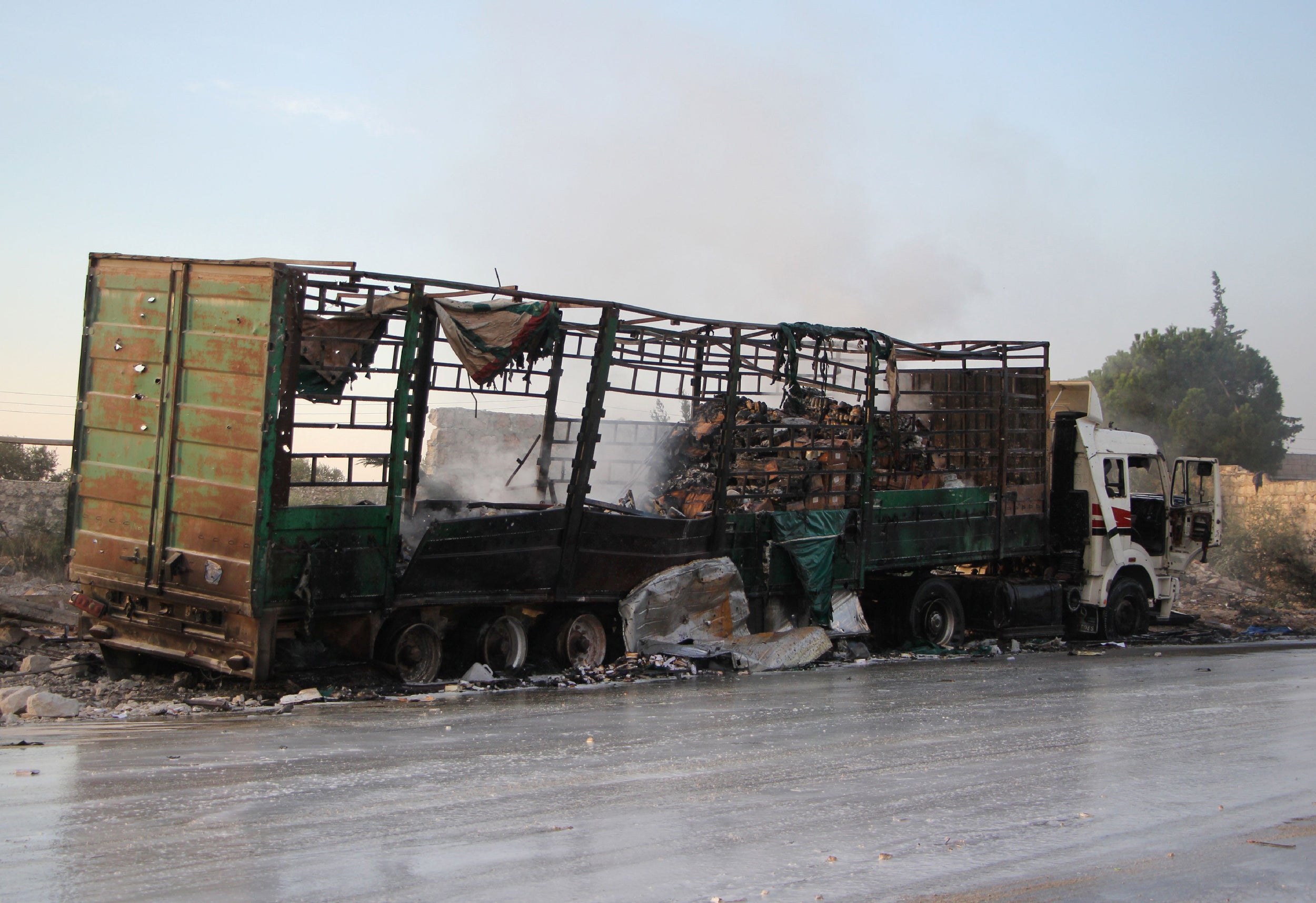Syria conflict: All sides seek to blame each other for breakdown of ceasefire
Parts of Aleppo are under constant bombardment, activists claim

Rebel fighters and Kurdish groups blamed each other, the Russians and the regime for the breakdown of the recently-arranged ceasefire in Syria by Washington and Moscow.
An aid convoy going to a rural area near Aleppo was attacked and several warehouses were also destroyed in the town of Uram al-Kubra after Bashar al-Assad’s regime declared that the truce had failed because the rebels had used the ceasefire to launch an offensive.
Syrian activists across the border in Turkey told The Independent that parts of Aleppo had been almost constant bombardment overnight from both regime and also, they claimed, Russian warplanes.
Kurdish groups maintained that Jabhat al-Nusra, which recently changed its name to Jabhat Fatah al-Sham and claimed to have ended its links with al-Qaeda had attacked both the south-west and north of the city and one of its targets appeared to be Kurdish neighbourhood of Sheikh Maqsood. The Islamist rebels are also said to have captured part of the strategic Castello highway forcing back regime forces.
The versions of what had taken place could not be immediately verified. Speaking at the Turkish town of Gaziantep, Alcan, a Kurdish activist, said “ Both sides are blaming each other for breaking the deal. But we hear that there was a Jabhat push towards Sheikh Maqsood, they got very closed, but were then stopped. The bombing of the convoy was a separate incident inn a separate area. My friends and I are not supporting Assad, but we are very worried about the Salafists.”
Eighteen out of the 31 trucks trying to get into the town of Uram al-Kubra with food and medicine for its 80.000 cut off residents were said to have been destroyed in the attack.

Jan Egeland, humanitarian coordinator in the office of the UN envoy for Syria said it was “outrageous that the convoy was hit while offloading at warehouses.” UN humanitarian chief Stephen O’Brien called on “all parties to the conflict to take all necessary measures to protect humanitarian actors, civilians, and civilian infrastructure as required by international humanitarian law.”
Mr O’Brien, the UN’s emergency relief coordinator, said the convoy had been clearly marked and its route had been provided to all parties in the conflict.
“Let me be clear: if this callous attack is found to be a deliberate targeting of humanitarians, it would amount to a war crime,” he added.
The US said that, regardless of whether Russian planes were involved in the convoy attack - something Russia has denied - it blamed Moscow for the attack because it was responsible under the ceasefire agreement for reining in Bashar al-Assad’s government forces. State department spokesman John Kirby said in a statement: “The destination of this convoy was known to the Syrian regime and the Russian federation and yet these aid workers were killed in their attempt to provide relief to the Syrian people.
“The United States will raise this issue directly with Russia. Given the egregious violation of the cessation of hostilities we will reassess the future prospects for cooperation with Russia.”Foreign ministers in the International Syria Support Group were due to meet on Tuesday before the start of the UN general assembly debate. US officials said the Secretary of State, John Kerry would meet his Russian counterpart, Sergei Lavrov, to try and save the ceasefire.
Join our commenting forum
Join thought-provoking conversations, follow other Independent readers and see their replies
Comments
Bookmark popover
Removed from bookmarks